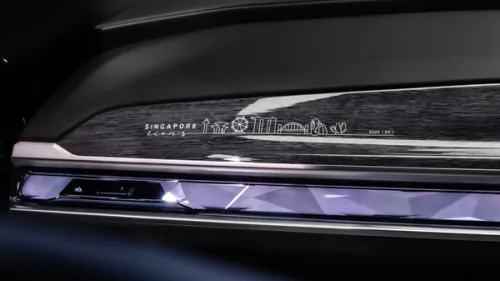EU Puts CO2 Legislations into Reverse
After much objection from the car industry and even from the German Chancellor, Angela Merkel, the European Commission has relented and revised plans for implementing tough vehicle emissions laws. Now proposed at 130g/km instead of the earlier 120g/km, the carbon dioxide gas laws will apply to the industry as a whole. While the car-makers have voiced out that the regulation will result in many job losses and factory closures, environmentalists were displeased that it had not been even tougher.

Defending the commission’s proposal, Industry Commissioner Guenter Verheugen urged the industry to “face up to it and not consider it a burden but consider it a positive challenge”, explaining that they would then “shortly be in a position to provide not only the safest and best cars, but also the cleanest cars.”
Environment Commissioner Stavros Dimas added that without the regulations the commission was proposing, the European Union would not be able to meet its greenhouse gas emission targets under the Kyoto treaty, or any post-Kyoto commitments.
Transport is one main sector of the European economy where carbon dioxide emissions have been rising rapidly in recent years, growing from 21% to 28% between 1990 and 2004.
Jos Dings of the environmental group Transport and Environment (T&E) expressed much disappointment also, calling the revision a “reward” to the motor industry for its inadequate efforts to achieve the voluntary target of 140g/km by 2008. He also called for the EU to put in place an 80g/km limit for 2020.
But the European Association of Automobile Manufacturers has argued that the commission’s proposition would erode the economic strength of Europe and focused too much on vehicle technology but insufficiently on other mechanisms, such as taxes and better fuels.
While the current emissions average stands at 162g/km for new European cars sold in 2005, some carmakers are already achieving significant progress. Fiat has already met the voluntary target of 140g/km by 2008, while Citroen and Renault are on track to accomplish it, with Ford and Peugeot not too far behind.
Among the worst performers, however, were names like Audi, Volvo, BMW and even Volkswagen, according to a study published last year by T&E.
The European Association of Automobile Manufacturers has cited various studies which suggest that improving vehicle technology is one of the least cost-effective methods of improving on CO2 emissions from transport. One of the studies has shown that car prices could jump between 2,400 and 4,000 euros (SGD $4,785 and $7,980). However, the environmentalists challenged that with other studies, saying that the increased cost could be a mere 600 euros (SGD $1,200) and that any extra costs would be quickly recouped, thanks to lower fuel consumption. They also pointed out that the manufacturers could increase prices for the higher-end models to compensate their reduced profits on the smaller cars.
A seminar in the European Parliament was held last week, where some helpful innovations were discussed.
Among those introduced were:
- Improved streamlining, and even the possibility of having dashboard displays to replace side mirrors
- Lights on the dashboard to indicate when best to change gears
- Lightening the cars, including methods such as modifying seat structures
Other changes proposed included:
- Devices to stop the engine when the car comes to a halt, and to start it up upon pressure on the accelerator
- Reducing the top speed of cars to more practical and regular levels
- More hybrid cars
- Further development towards more efficient diesel engines
Before the legislation, which will be drafted later this year or early 2008, is implemented, it will need to be approved by the member states and the European Parliament.
Credits: Kr0n


Get the Best Price for your used car
from 500+ dealers in 24 hours

- Convenient and Hassle-Free
- Consumer Protection
Transparent Process
With No Obligation








